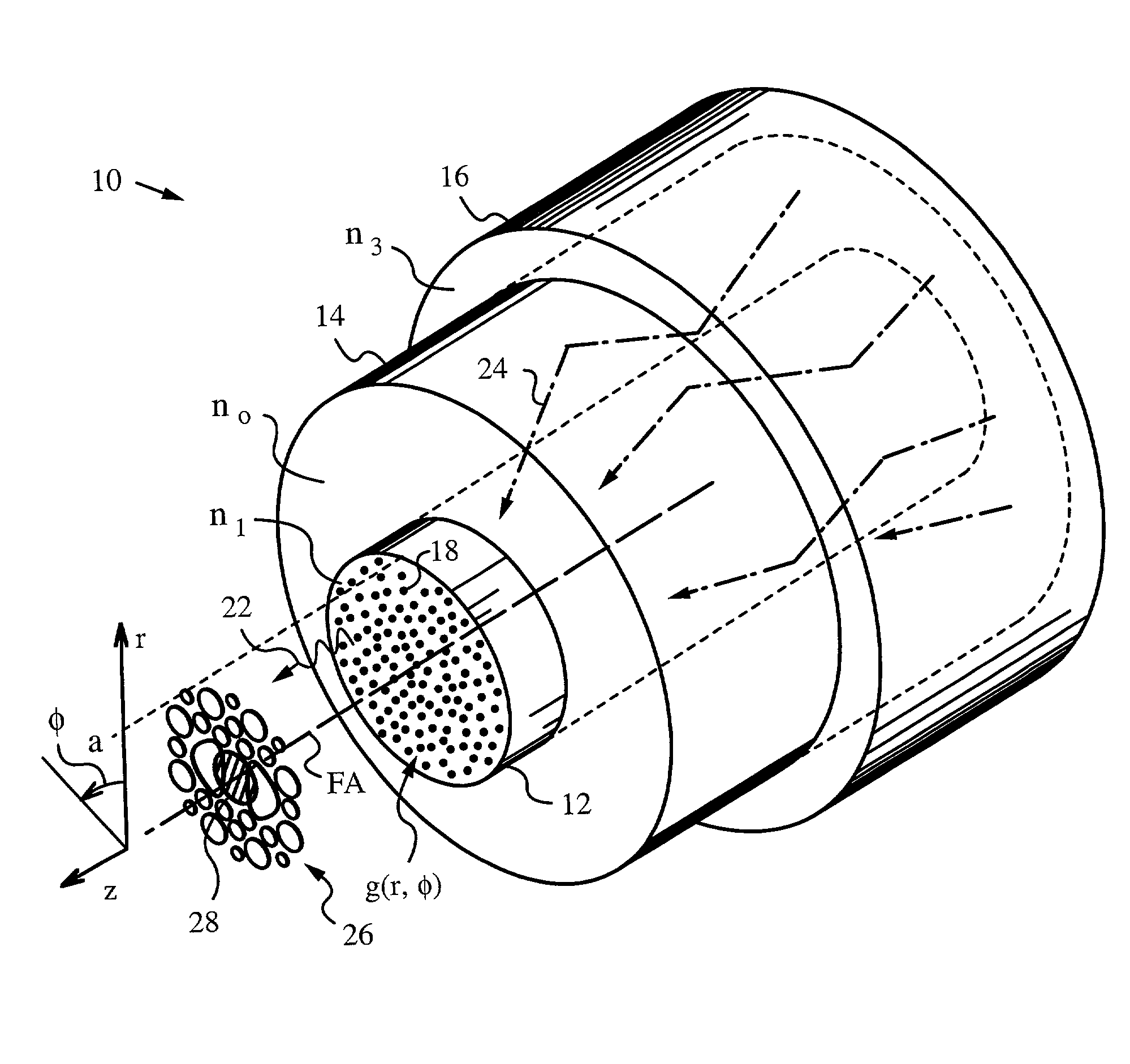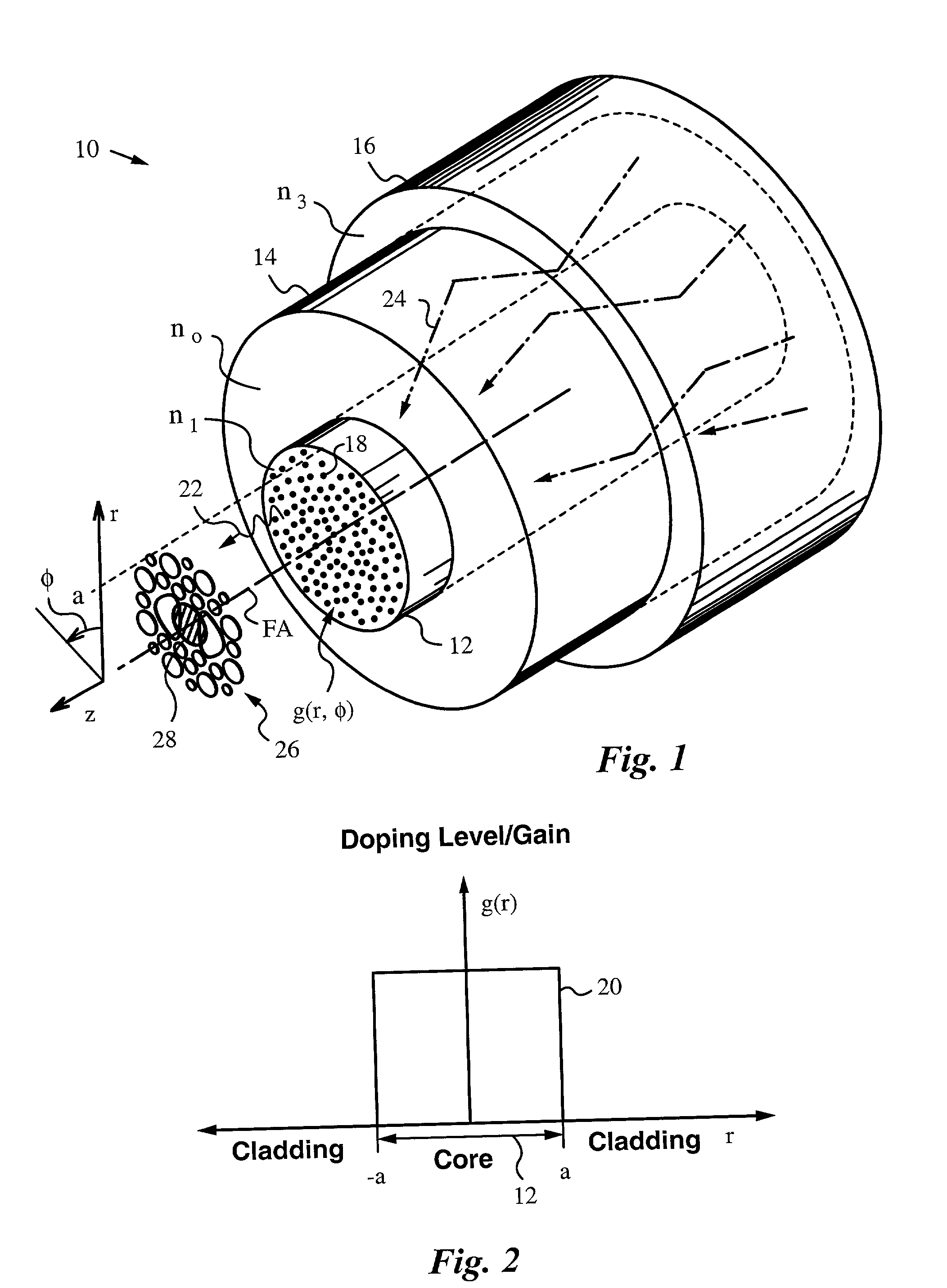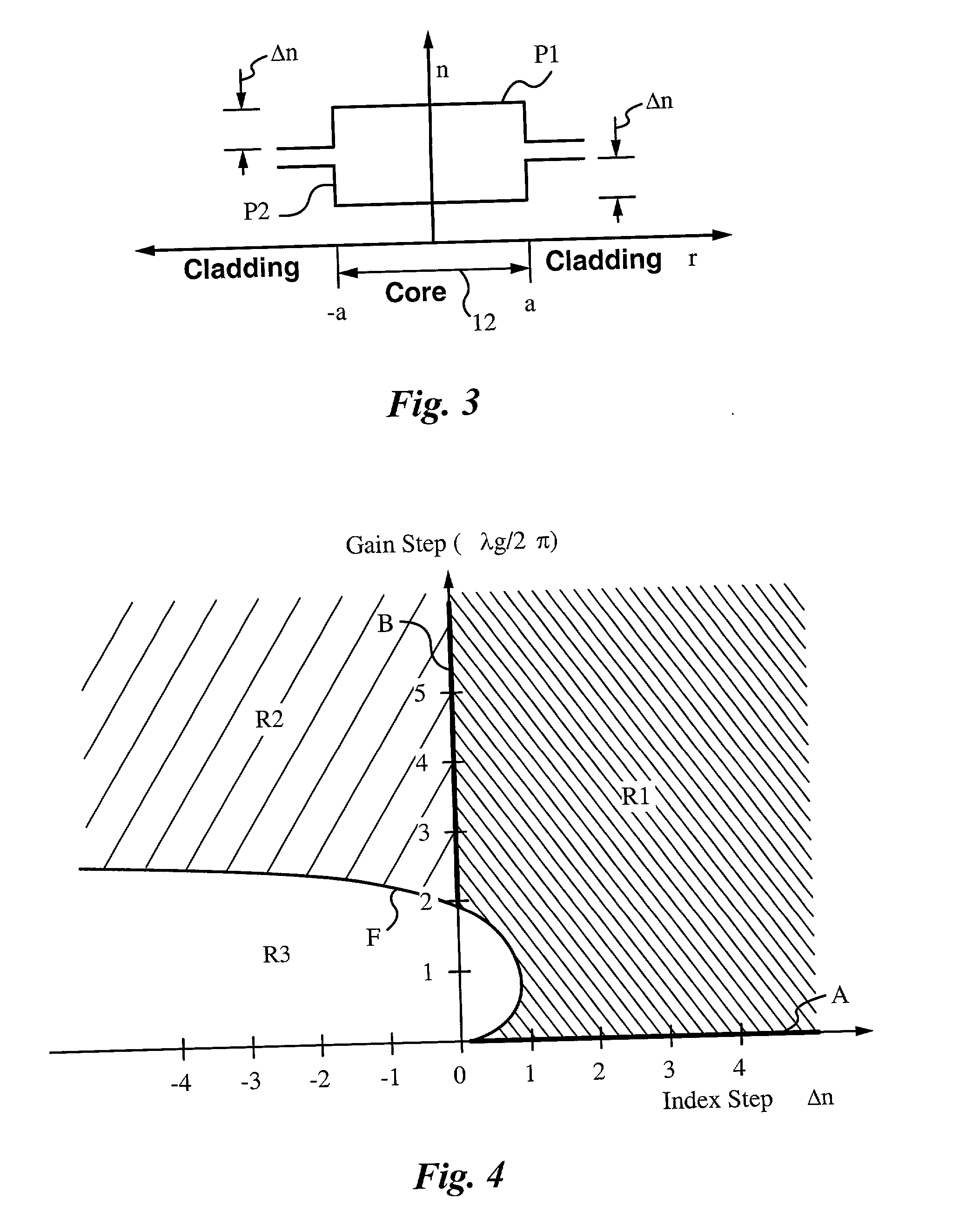Fiber lasers having a complex-valued Vc-parameter for gain-guiding
a fiber laser and gain-guiding technology, applied in the field of fiber lasers, can solve the problems of inability to define guided modes, inability to control the index of refraction in the core and cladding regions to this degree of accuracy, and the gain-guiding is not strong enough to define guided modes. the effect of us
- Summary
- Abstract
- Description
- Claims
- Application Information
AI Technical Summary
Benefits of technology
Problems solved by technology
Method used
Image
Examples
example 2
[0090] FIG. 14 shows a graph of a truncated parabolic doping profile 52 with a doping diameter of 300 .mu.m produced in a fiber core of 300 .mu.m diameter. The fiber has a uniform refractive index (.DELTA.n=0). The gain has a maximum of 1 cm.sup.-1 or 4.34 dB / cm on the fiber axis. Fundamental mode 28 (TEM00) and first-order mode 30 (TEM01) are superimposed on doping profile 52. The TEM00 mode gain in this example is 2.64 dB / cm and TEM01 mode gain is 2.24 dB / cm.
example 3
[0091] FIG. 15 shows a graph of a truncated parabolic doping profile 54 with a doping diameter of 400 .mu.m produced in a fiber core of 400 .mu.m diameter. The fiber has a uniform refractive index (.DELTA.n=0). The gain has a maximum of 0.5 cm.sup.-1 or 2.2 dB / cm on the fiber axis. In this example the TEM00 mode gain is 1.8 dB / cm and TEM01 mode gain is 1.06 dB / cm.
example 4
[0092] FIG. 16 shows a graph of a step doping profile 56 with a doping diameter of 150 .mu.m produced in a fiber core of 150 .mu.m diameter. The fiber has a uniform refractive index (.DELTA.n=0) The gain has a maximum of 1 cm.sup.-1 on the fiber axis. In this example the TEM00 mode gain is 0.65 dB / cm and the percent power retained in the core is 65%.
[0093] Note that this and the following two examples represent purely gain-guided fibers that are entirely single-mode in operation, despite the large diameter of the doped core of the fiber. As shown in FIGS. 16 through 18, in each case the single mode of the fiber has a large fraction of its energy contained within the doped core, as is desirable for efficient laser operation, although the "tails" of these modes in each case have some spillover out into the cladding region of the laser.
PUM
 Login to View More
Login to View More Abstract
Description
Claims
Application Information
 Login to View More
Login to View More - R&D
- Intellectual Property
- Life Sciences
- Materials
- Tech Scout
- Unparalleled Data Quality
- Higher Quality Content
- 60% Fewer Hallucinations
Browse by: Latest US Patents, China's latest patents, Technical Efficacy Thesaurus, Application Domain, Technology Topic, Popular Technical Reports.
© 2025 PatSnap. All rights reserved.Legal|Privacy policy|Modern Slavery Act Transparency Statement|Sitemap|About US| Contact US: help@patsnap.com



